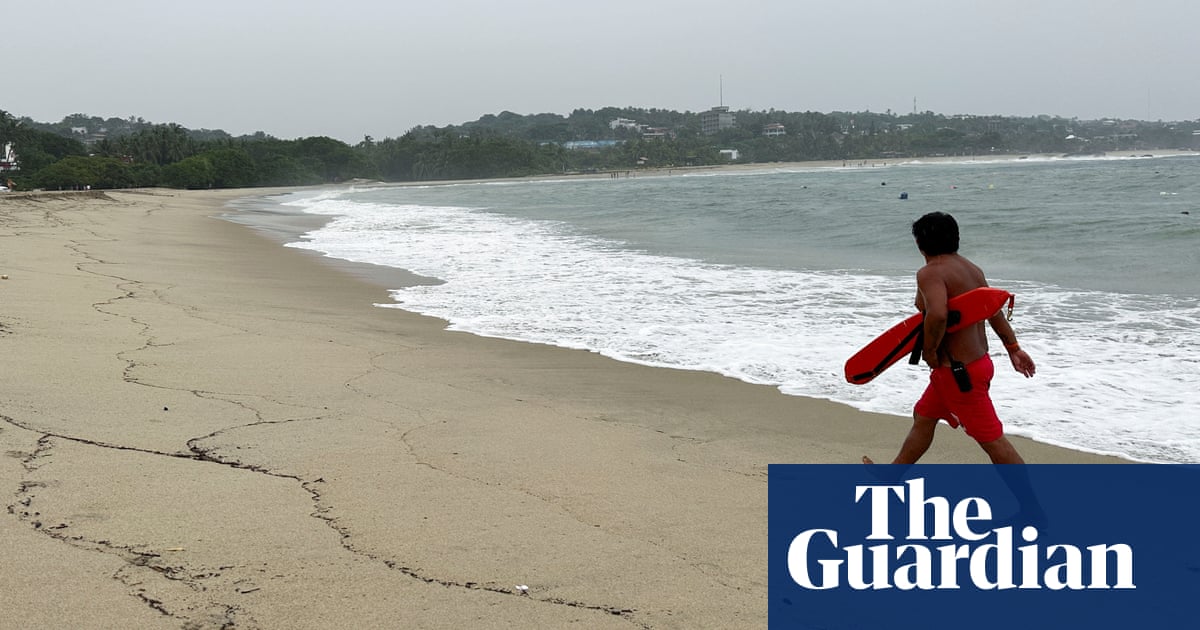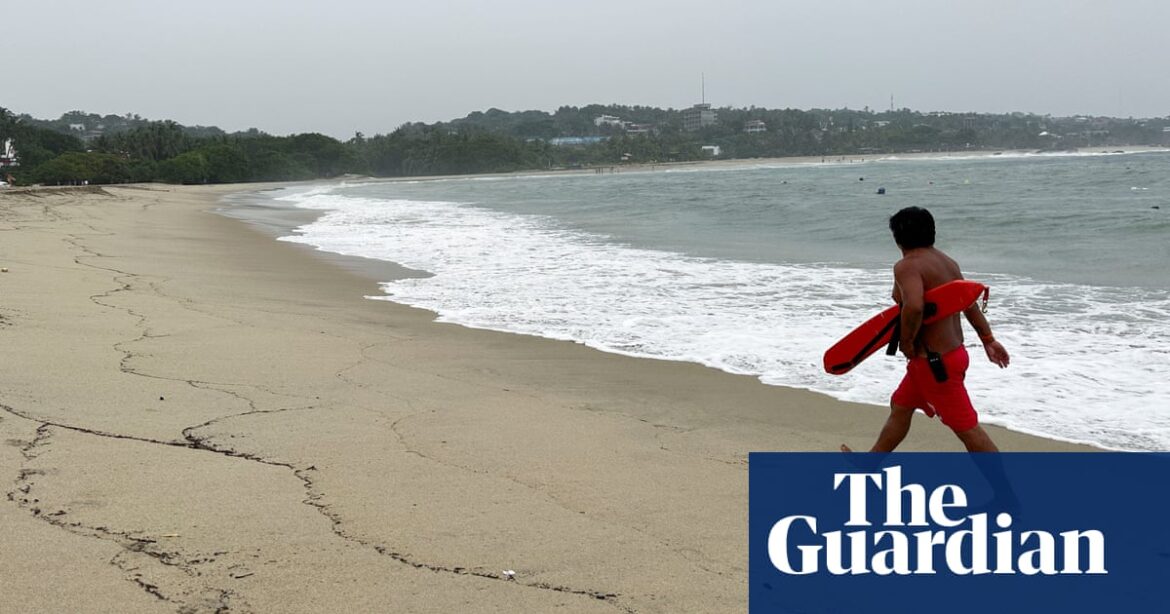
Mexico’s southern coast was bracing for flash floods and storm surges as Hurricane John quickly intensified into a category 2 storm on Monday afternoon.
Originally forecast as a tropical storm, Hurricane John “rapidly strengthened” into a category 2 hurricane with maximum sustained winds of 100mph (160kmh), according to the US National Hurricane Center, which warned of “damaging hurricane-force winds, life-threatening storm surge and flash flooding”.
The storm was located 50 miles (90km) south of Punta Maldonado, and was moving north at 6mph (9km/h).
John was forecast to continue strengthening to a major hurricane before making landfall on Tuesday, bringing with it heavy downpours.
“This heavy rainfall will likely cause significant and possibly catastrophic, life-threatening flash flooding and mudslides to the Mexican states of Chiapas, Oaxaca and south-east Guerrero, particularly in areas near the coast,” the NHC warned.
In Oaxaca’s coastal cities residents and businesses braced themselves for the storm.
Hotels in the tourist city of Puerto Escondido were awaiting instructions from Mexican civil protection to begin the eventual evacuation of tourists to transfer them to safer areas.
An employee of one of the hotels in the town said “we are on alert” awaiting instructions from local authorities.
Videos on social media from Puerto Escondido showed flip-flop-clad tourists walking through heavy rain and people pulling their boats out of the water. Strong rains in previous days have already left some roads in the region in a precarious position.
Mexican authorities were meeting on Monday afternoon to plan their response to the hurricane.
Through Thursday, John is expected to produce 6in to 12in (15cm to 30cm) of rain across coastal areas of Chiapas state with more in isolated areas. In areas along and near the Oaxaca coast to south-east Guerrero, between10in and 20in of rain with isolated higher totals can be expected through Thursday.
after newsletter promotion
The hurricane is bleak news for the region, which last year was walloped by a similar rapidly intensifying hurricane.
Hurricane Otis devastated the resort city of Acapulco last October, damaging more than 200,000 homes and killing at least 45 people, with dozens reported missing.
Residents had little warning of the strength of what was about to hit them. One of the most rapidly intensifying hurricanes ever seen, scientists at the time said it was a product of changing climate conditions.
Otis blew out power in the city for days, left bodies scattered on the coast and desperate family members searching for lost loved ones. Much of the city was left in a state of lawlessness and thousands scavenged in stores, scrambled for food and water.
Source: theguardian.com



